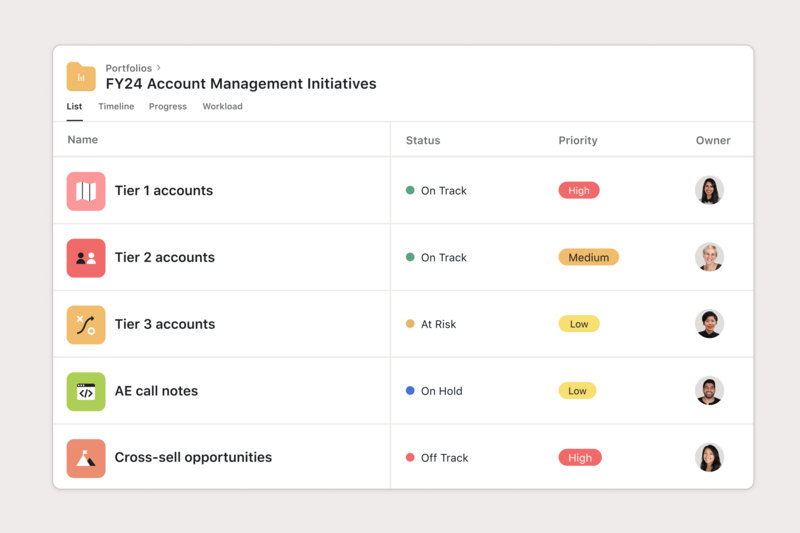Project leaders are the driving force behind successful project completion. They engage in strategic management tasks, including project planning and decision-making, to ensure project goals are met. Let’s go into the essential responsibilities of project leaders, explore their leadership skills, and understand the impact of project management.
Introduction to Project Leadership
Project leadership stands at the heart of project success. It encompasses not only task management but also team support, strategic planning, and effective coordination. A project leader’s role extends beyond mere execution; they orchestrate efforts toward achieving project objectives.
Decisiveness and efficient project planning are paramount. Additionally, fostering team cohesion and maintaining open communication with stakeholders are critical. A project leader’s ability to motivate the team ensures unwavering focus and high productivity. Mastery of project management leadership is the linchpin for seamless task execution and collaborative teamwork.
Defining the Role of a Project Leader
Project leaders play a pivotal role in steering projects toward their intended outcomes. Their responsibilities span strategic management—setting clear objectives, meticulous project planning, and ensuring timely task delivery. But it doesn’t end there.
Team-related duties significantly shape a project leader’s role. From seamless team coordination to providing essential support, they keep the engine running. Effective leadership skills, coupled with adept decision-making and communication abilities, drive success.

Motivating the team is equally vital. A project leader’s influence directly impacts project outcomes. Their expertise in project management leadership guides the entire team toward shared goals.
The Significance of Project Leadership in Agencies
Within agencies, project leadership is the linchpin of achievement. It commences with strategic management and meticulous project planning. Project leaders make critical decisions, maintain transparent communication, and ensure seamless team coordination. Their leadership skills provide unwavering team support, fueling effective task execution.
In the complex realm of task management, project leaders balance resources and time. Their impact reverberates throughout the project, propelling it toward the desired results. Undoubtedly, project management leadership acts as the catalyst for success, shaping the project’s trajectory.
Key Responsibilities of a Project Leader
Project leaders spearhead strategic management, project planning, and exhibit leadership skills. They assess and establish project goals through strategic management. Project leaders also ensure project tasks are completed on time through meticulous planning.
Demonstrating exceptional leadership skills is a fundamental responsibility for project leaders. This includes making decisions, coordinating teams, and supporting team members. They inspire their teams, manage tasks effectively, and promote clear communication.
As the epicenter of project management, project leaders command their teams with authority. They make pivotal decisions that resonate with the project’s objectives and orchestrate task coordination among team members.
Planning and Defining Scope
Project management begins with planning and defining scope, a critical step that includes several responsibilities of a project leader. They manage project tasks strategically, make decisions aligned with project goals, and communicate effectively with the team.
Leadership skills shine in this phase, propelling team coordination and task management. Project leaders not only support but also motivate their team, ensuring the project plan’s successful execution.
Thus, project planning strikes a fine balance between project management leadership and collaborative team effort.
Activity Planning and Sequencing
The role of a project leader is crucial in project management. They are responsible for task management, which involves planning and sequencing project activities, ensuring team coordination, and providing necessary support. These duties require unique leadership skills.
Strategic management is applied through setting project goals and making essential decisions to achieve these goals. Effective communication is imperative, both in detailing project plans to the team and in fostering team motivation.
In essence, project management leadership is about harmonizing these elements and driving the team toward the project’s successful completion.
Resource Planning
Resource Planning is a crucial aspect of project management and involves strategic management of human, technical, and financial resources. The project leader responsibilities include team coordination, task management, and decision-making to allocate resources effectively for achieving project goals.
Key components of resource planning include:
- Team Support: The project management team provides support to keep all project tasks on track.
- Leadership Skills: Effective project management leadership enhances team motivation and ensures smooth communication.
- Project Planning: Comprehensive project planning facilitates the determination of the necessary resources and their appropriate allocation.
Developing Schedules
Project leaders are pivotal in crafting schedules, a cornerstone of project management. They employ strategic and task management to ensure project tasks are assigned both timely and accurately, which is crucial for team coordination. Effective schedule development hinges on sound decision-making, communication, and leadership skills.
Schedules are instrumental in project planning, helping to define project goals and bolster team support. They foster transparency and accountability, vital for team motivation. Thus, project management leadership is key to guiding the team in creating and upholding effective schedules.
Risk Analysis and Management
Risk analysis and management stand as vital pillars of project leadership. The fate of a project swings on the fulcrum of strategic management and exceptional leadership. A successful project leader is adept at spotting potential risks, mitigating them with logic, and bracing for unexpected challenges.
Coordinated teams, clear communication, and thoughtful decision-making are the hallmarks of effective task management. A project management team must set realistic goals, plan diligently to achieve them, and offer unwavering support.
Moreover, a capable leader inspires the team, ensuring smooth and efficient execution of project tasks, culminating in the project’s triumph.
Monitoring and Reporting Progress
Project leaders excel in team coordination, task management, and decision-making. They manage project tasks to align with project goals, keeping the team driven. Strategic management and leadership skills are the gears that turn the project forward.
Communication is also paramount in monitoring and reporting progress. It ensures solid team support, effective project management leadership, and aids in project planning. Ensuring all project facets are functioning efficiently and aiming for the set goals is a critical aspect of project management.
Skills Required for Effective Project Leadership
Effective project leadership requires a unique blend of skills. Paramount among these are leadership skills, which entail the ability to provide team support and motivation, facilitate task management, and foster a coordinated approach to fulfilling project tasks.
Additionally, strategic management is crucial, as it involves decision making, project planning and setting project goals. The project leader responsibilities also include exceptional communication skills, as it is the project leader's duty to ensure a clear understanding of tasks, goals, and expectations across the project management team.
This streamlines overall project management and ensures that each team member is pulling in the same direction, ultimately contributing to the success of the project.
Communication Skills
Having solid communication skills is key to performing project leader responsibilities effectively. It involves strategic management of information to ensure clarity and understanding among the project management team. This aids in efficient task management, team coordination and decision making, which are essential to achieving project goals.
Leadership skills such as team motivation and team support are largely dependent on excellent communication. The ability to convey project planning details, provide feedback on project tasks, and rally the team towards accomplishing set objectives is crucial.
Overall, communication forms an integral part of project management leadership, exactly why it is a much sought after skill in this field.
Problem-Solving Abilities
A good project leader must possess the ability to efficiently and effectively handle project management.
Leadership skills are necessary for strategic management, decision making and planning each of the project tasks. In addition to these, a project leader has other responsibilities such as:
- Team coordination
- Provision of team support
- Communication
These elements collectively aid in achieving project goals. A strong aspect of project management leadership also involves motivating the project management team to ensure successful completion of tasks.
Decision-Making Skills
Effective decision-making is an integral part of project management leadership. One major project leader responsibility is to make strategic decisions regarding project tasks, aligning them with project goals. This includes task management, team coordination and providing team support.
Along with good decision making, strong communication is crucial. It facilitates better team motivation and helps create a more efficient project management team. Leadership skills are vital in these aspects - ensuring smooth project planning and management.
Team Management Skills
Effective project management leadership demands a set of skills that encompasses strategic management, decision making, and project planning. A project leader's responsibilities necessitate strong leadership skills to coordinate the project management team effectively, assisting in setting project goals and ensuring smooth team coordination.
Key attributes also include excellent communication skills needed for task management and the ability to provide essential team support. Project management also entails fostering team motivation, which is pivotal in achieving project tasks successfully. Hence, these skills are essential for managing a team successfully.
Project Leader vs Project Manager: Understanding the Difference
A project leader and a project manager have different roles in project management. While both positions require leadership skills and team coordination, they focus on different areas. A project manager is responsible for decision making, strategic management, and project planning, aligning all tasks with the project goals. Their role includes task management and ensuring team support.
The project leader, on the other hand, is more involved in team interaction. They deal directly with the project management team, fostering team motivation and communication. Some of their core project leader responsibilities involve working on the ground level, ensuring that the project tasks are executed as per plan.
Project Manager: The Architect of Strategic Management
- Decision Making: Project managers wield the decision-making scepter. They evaluate options, weigh risks, and chart the course. Their compass always points toward project goals.
- Strategic Management: Project managers orchestrate the grand symphony. They harmonize resources, timelines, and objectives. Their baton directs the ensemble toward success.
- Project Planning: Project managers are the architects of blueprints. They meticulously design project structures, ensuring every brick aligns with the overarching vision.
- Task Management: Their hands-on approach ensures tasks flow seamlessly. They juggle schedules, allocate resources, and keep the gears turning.
- Team Support: Project managers are the safety net. They catch falling balls, provide guidance, and shield the team from chaos.
Project Leader: The Team Guide
- Team Interaction: Project leaders thrive in the trenches. They roll up their sleeves, engaging directly with the project management team. Their pulse syncs with the team’s heartbeat.
- Fostering Motivation: Project leaders stoke the fire. They ignite passion, inspire dedication, and fuel the team’s drive. Their words resonate like rallying cries.
- Effective Communication: Their quiver holds arrows of clarity. Project leaders ensure everyone speaks the same language. No lost signals, no missteps.
- Ground-Level Execution: Project leaders don’t just draw maps; they walk the terrain. They ensure project tasks materialize as planned—boots on the ground, eyes on the prize.
- Balancing Act: Their tightrope stretches across project stages. They manage expectations, navigate obstacles, and keep the show running.
Tools and Software for Project Leaders
Being a project leader involves juggling numerous project leader responsibilities. While leadership skills play a critical role, leveraging the right tools and software can enhance team coordination, project planning, and task management.
Project management software typically provides valuable frameworks to bridge communication gaps, facilitate decision making, and provide team support. Some software also incorporates aspects of strategic management to align project tasks with larger project goals.
Apart from these, there are also tools that specifically encourage team motivation, strengthening the project management team's ethos and commitment. Therefore, the right toolset not only optimizes project management leadership but also ensures all project goals are met more efficiently.
Bonsai
Bonsai calls brings projects, clients, resources, and billing into one integrated workspace.
.png)
Why project leaders love it
- One command centre for delivery & dollars – Timeline/Gantt views, Kanban boards, and live budget dashboards sit side-by-side, so you keep every project on time and on margin without juggling tabs.
- Automated resource management – Drag-and-drop scheduling lets you allocate hours, track real-time capacity, and spot overloads before they bite—zero spreadsheets.
- Click-to-cash financial flow – Proposals, e-signatures, invoices, and payments feed directly from your plan, ensuring forecasts always mirror actuals and cash lands faster.
More than 10 000 agencies and service teams trust Bonsai to replace scattered tools with a single source of truth—freeing project leaders to focus on strategy, stakeholder alignment, and standout results.
Asana

Asana simplifies task management, making project management more manageable. It aids in team coordination, ensuring effective decision making and smooth project planning. This tool can bolster project leader responsibilities, notably in setting project goals and providing team support.
Through Asana, project management leadership can maximize communication and strategic management. It enhances leadership skills, fostering team motivation and accomplishment of project tasks. It takes the complexity out of managing a project management team, making the execution of tasks more streamlined and efficient.
Slack for team communication

Project management becomes more efficient with Slack, a tool designed to streamline team coordination and project tasks. As a platform, Slack enhances communication, promoting transparency in decision making and providing robust support for team members. It contributes significantly to project planning by organizing discussions around project goals, thus enhancing strategic management.
Equally, it plays a substantial role in project management leadership. Slack features allow project leaders to delegate responsibilities, track task management, and implement leadership skills. Through its varied functionalities, it encourages a more motivated and connected project management team.
Conclusion: The Impact of Effective Project Leadership
The impact of effective project leadership stretches across team coordination, task management, and strategic management, centralizing the roles of successful project management.
Project leader responsibilities encompass robust decision making, communication skills, and providing team support- all of which can significantly influence project goals and team motivation.
Thus, project management leadership is undeniably crucial for project tasks execution, promoting cohesive project planning and management within the project management team.







